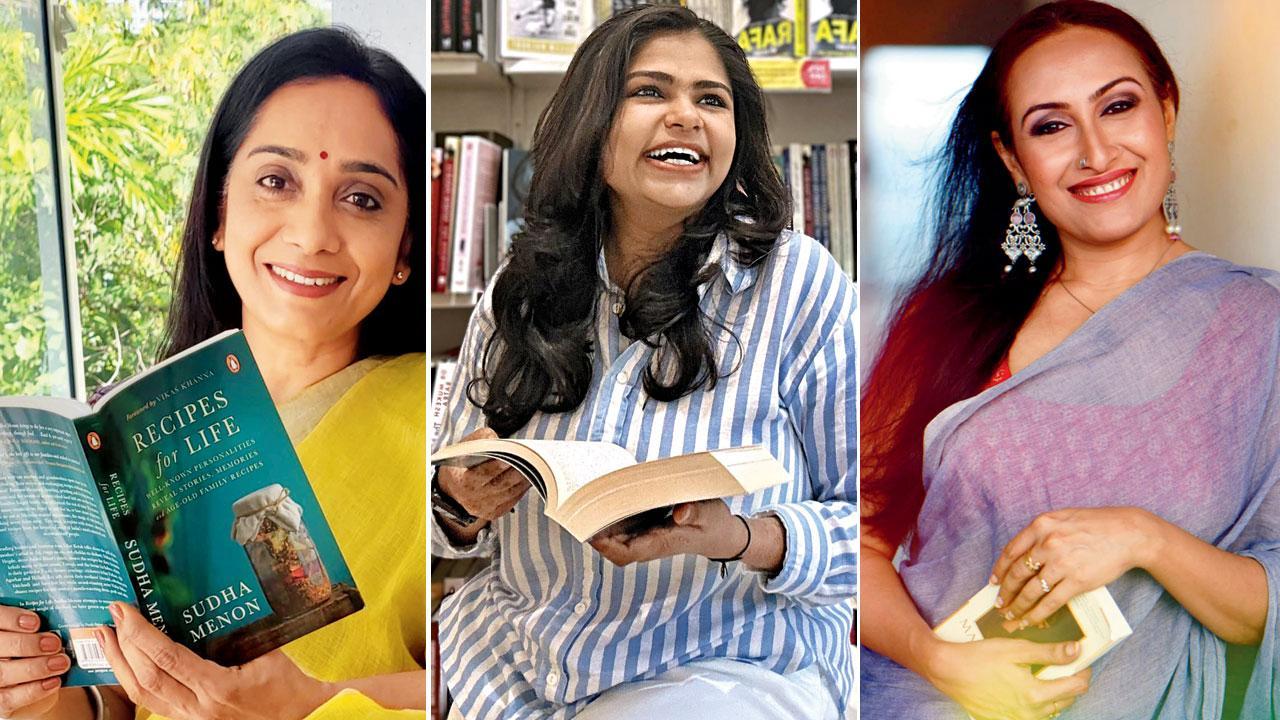Once a hashtag that promoted reading, #bookstagram, aka book reviewers online, may have taken on a transactional turn, especially for authors and publicists

Recipes for Life suthor Sudha Menon says that what surprises her is that teenagers are reaching out to her with paid packages to review her books; Book reviewer Vidhya Thakkar, who has 25,000 followers on Instagram, says that the Bookstagrammer community must become collaborative instead of being competitive; Koral Dasgupta has been at the receiving ends of threats of bad reviews by bookstagrammers
Books are being reviewed based on what’s written on the back cover, without taking the effort of actually going through the story,” says Recipes for Life’s author Sudha Menon. “There is a myth that the more reviews your book gets, the more sales you garner. But in the end, your book gets sold only because it’s a good book.”
ADVERTISEMENT
In 2024, when authors have to do their own marketing, and publishers and publicists rely on the author’s clout online and social media “buzz”, the #bookstagram and #booktok trends have become the order of the day, and the reviewers, kings and queens. But there is a wave that’s saying that some bookstagrammers may have got too big for their boots. Many authors and publicists are now feeling that “reading and reviewing” has taken on a transactional turn, with books being recommended based on the money paid by the authors/publishers, or as Menon said, just the synopsis on the back. “Sometimes, influencers threaten us that they will put up a bad review on Goodreads or Amazon if we don’t comply and pay, or bombard us with multiple rates and packages,” says Koral Dasgupta, the author of Kunti, the second book in the Sati series, published by Pan Macmillan India. Menon adds that what surprises her is the age of these reviewers, with most of them being teenagers or young adults between the age of 13-25. “Most of these intrusive and threatening comments are from teenagers who get quite defensive if we refuse to purchase their packages,” says Menon.
 Ditsha Gupta
Ditsha Gupta
Dasgupta adds another lament, “I had another reviewer come and tell me that one of the reviews by someone online was actually written using ChatGpt and not genuine.”
Along with the “review for money” angle that’s crept in, Booktok/Bookstagram is also fostering a collective mindset of liking or hating a book or a writer—which beats the purpose of readers choosing their own likes and dislikes. The personalities of the authors or even the readers are judged on the kind of books they pick or write. The fan/hate cult of Colleen Hoover’s books is a perfect example of this mindset, with her books being criticised for the romanticism of abuse and violence on one hand, and on the other, selling more than 30 million copies as of last year.
This culture has also paved the way for a literal demand of “judging the book by its cover”, where books are picked based on the aesthetics and appeals of the books.
But as Penguin Marketer and publicist Ditsha Gupta says, “We decide on the covers based on what resonates with the story. Our primary focus has always been to encourage authors to focus on their writing more than the cover.” Many publicists are also turning their passion for reading and promoting books into a second profession, and merging into the culture. For them, the consumption of the Bookstagram culture remains in the hands of the consumers. “As a bookstagrammer myself, I believe it’s the readers who decide on what they want to consume and what kind of book they wish to read,” says Senior Penguin publicist Chaitanya Srivastava.
Srivastava could feel the way he does, given his background of publishing, where the story is the hero. But what does an OG bookstagrammer have to say about the accusations being hurled at their community. Vidhya Thakkar, a bookstagrammer for the past eight years, who has a following of 25k on Instagram, believes that today, the bookstagrammer community has become more competitive, rather than being collaborative. “In the race for getting more money or followers, the love for reading is lost and personal choices are being belittled. But, if people start respecting these choices and reduce this angsty competition, the dark side of this culture will definitely change,” she signs off.
 Subscribe today by clicking the link and stay updated with the latest news!" Click here!
Subscribe today by clicking the link and stay updated with the latest news!" Click here!







